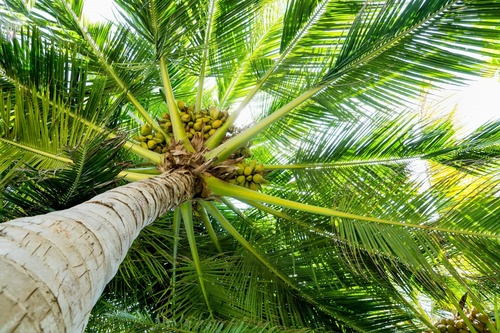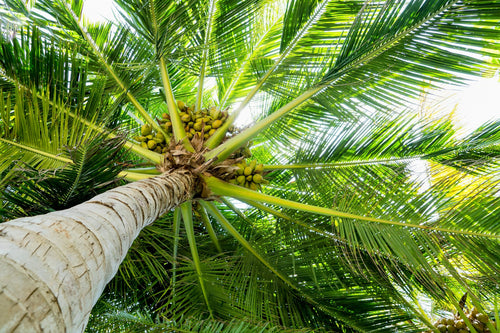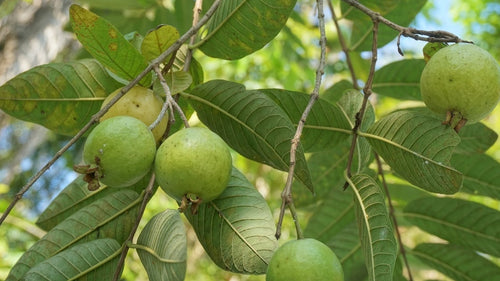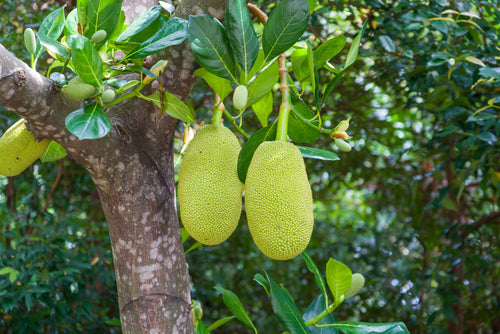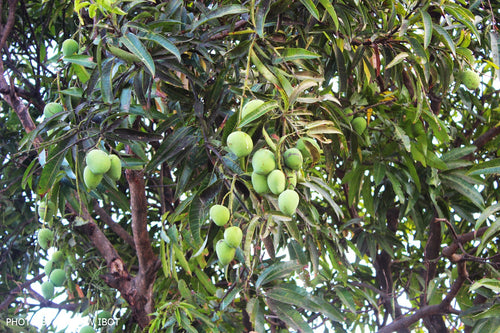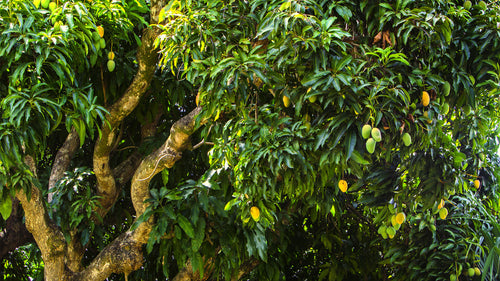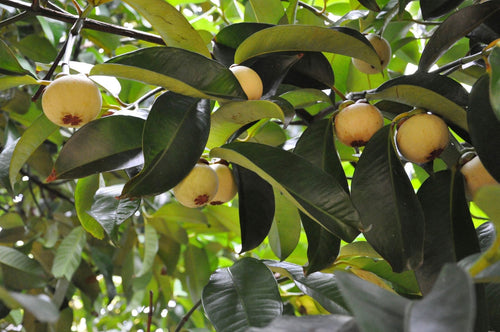Rotary Club of Delhi South: Cultivating a Greener Future Through Urban Forests
The Rotary Club of Delhi South launched a tree plantation initiative in the heart of New Delhi, aiming to promote environmental sustainability through Read more
Project Update 1
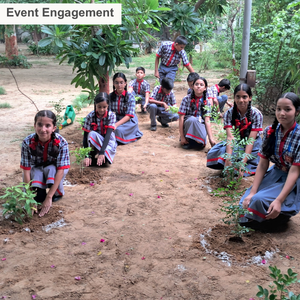
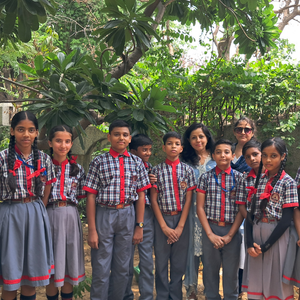
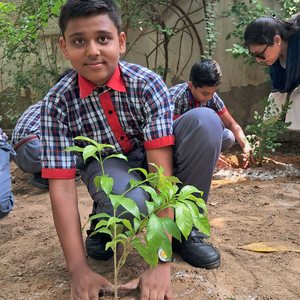
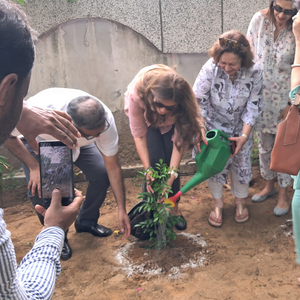
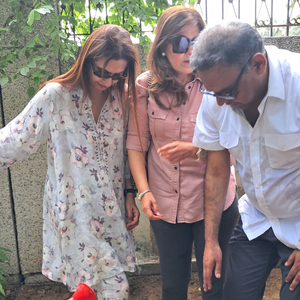
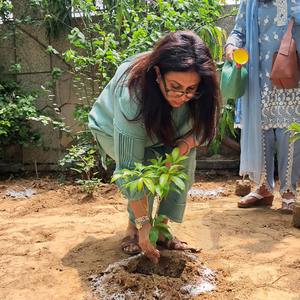

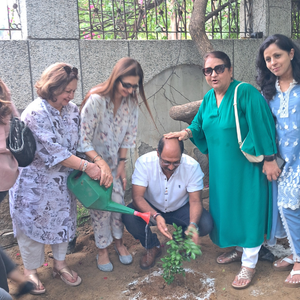
Digital Forest
Forest with 400 Trees planned
Want to plant your tree now?
Plant a Tree @ 299Rotary Club of Delhi South: Cultivating a Greener Future Through Urban Forests
The Rotary Club of Delhi South launched a tree plantation initiative in the heart of New Delhi, aiming to promote environmental sustainability through the creation of an urban forest. The event took place at the school premises in Pragati Vihar, New Delhi, where both Rotary Club members and school students came together to make a meaningful impact on the environment.
The initiative focused on involving the local community, especially the younger generation, in environmental conservation. Students actively participated in the plantation activities, alongside Rotary Club members, as they planted and watered saplings in the school's premises. This hands-on experience not only fostered a sense of responsibility towards nature but also educated the students on the
importance of maintaining green spaces in urban areas.
By planting trees in the heart of the city, the initiative aimed to combat the effects of urbanization and contribute to a cleaner, greener, and more sustainable future for Delhi. The students and Rotary members worked side by side, ensuring that the saplings were properly cared for, fostering a sense of collective environmental stewardship.
This initiative aligns with the Rotary Club of Delhi South's broader commitment to environmental sustainability, providing a platform for individuals to take actionable steps toward building a better future for the environment, one tree at a time.
Tree Plantation Date
20th July 2024
Plantation Location
Lodhi Rd, Meharchand Market, Pragati Vihar, New Delhi, Delhi 110003
Trees Planted
Total Count: 400 Trees
Species Name: Mango, Guava, Chiku, Jackfruit, Coconut
Forest Type: Urban Forest
The Rotary Club of Delhi South has launched an impactful urban forest tree plantation initiative aimed at promoting environmental sustainability in New Delhi. By planting trees in urban spaces, the club is working to create greener, healthier environments that help combat the challenges of rapid urbanization, such as air pollution and the urban heat island effect. This initiative focuses on the development of urban forests green spaces within the city that contribute to improved air quality, enhanced biodiversity, and better public health. Through active community involvement, including collaboration with local schools and residents, the club is fostering environmental stewardship and raising awareness about the importance of urban greenery. The project not only beautifies the city but also plays a crucial role in mitigating climate change and creating sustainable urban landscapes for future generations.
Advantages Of Urban Forest
Improved Air Quality
Urban forests help in reducing air pollution by absorbing carbon dioxide (CO2) and releasing oxygen. The trees planted as part of this initiative act as natural air filters, trapping dust, pollutants, and particulate matter from the atmosphere, thus improving the overall air quality in the city. This contributes to healthier living conditions for residents, especially in urban areas with high pollution levels.
Climate Change Mitigation
Trees play a critical role in combating climate change by absorbing carbon emissions. The Rotary Club of Delhi South's initiative helps sequester carbon from the atmosphere, reducing the overall carbon footprint of the city. As these trees grow, they store more carbon, thus directly contributing to mitigating global warming and the harmful effects of climate change.
Enhanced Biodiversity
Urban forests provide a habitat for various species of birds, insects, and small animals, helping to increase urban biodiversity. The initiative promotes the planting of native tree species, which supports the local ecosystem and creates green corridors for wildlife in the city. This helps in preserving native flora and fauna, which are often threatened by urban development.
Reduction of Urban Heat Island Effect
One of the major challenges of urbanization is the urban heat island effect, where cities become significantly warmer than their rural surroundings due to the high density of buildings and concrete surfaces. The trees planted in urban forests help mitigate this effect by providing shade and cooling the environment through transpiration, making urban areas more comfortable, especially during hot summer months.
Flood Control and Water Management
Urban forests help with rainwater absorption, reducing the risk of floods in heavily built-up areas. Trees and their roots act as natural sponges, absorbing rainwater and allowing it to percolate into the soil. This prevents water runoff and reduces the strain on drainage systems, which is crucial in cities prone to flash floods during the monsoon season.
Improved Mental and Physical Health
Exposure to green spaces has been linked to numerous health benefits, including reduced stress, improved mental well-being, and enhanced physical health. The creation of urban forests provides city dwellers with access to nature, offering spaces for relaxation, exercise, and recreation. This contributes to better overall health and quality of life for the local population.
Community Engagement and Awareness
The tree plantation initiative by the Rotary Club of Delhi South encourages active community participation, involving local residents, schools, and volunteers in the process. This not only strengthens community bonds but also raises awareness about the importance of environmental conservation. By engaging the community, the initiative fosters a culture of sustainability, empowering individuals to take action toward protecting the environment.
Sustainable Urban Development
The creation of urban forests aligns with the concept of sustainable urban development, where cities grow without compromising the environment. The initiative contributes to making urban spaces more livable, resilient, and green, which is essential for cities to thrive in the face of increasing population density and environmental challenges.
Activities During Tree Plantation
The Rotary Club of Delhi South’s tree plantation initiative at a school in Pragati Vihar focused on engaging students in meaningful environmental activities within the urban forest concept. The site was carefully prepared in advance to ensure smooth execution of the event. During the initiative, Rotary members and school students collaboratively planted saplings, emphasizing the importance of green spaces in urban areas. Students enthusiastically joined in, learning hands-on about the significance of trees for environmental sustainability. Together, they watered the newly planted saplings, symbolizing a shared commitment to nurturing nature and fostering a greener, healthier future for their community.
Tree Plantation Purpose
The Rotary Club of Delhi South’s tree plantation initiative in the urban forest concept for environmental sustainability aligns with several United Nations Sustainable Development Goals (SDGs).
1. SDG 3: Good Health and Well-Being
Urban forests improve the mental and physical well-being of city residents. The greenery created through the tree plantation initiative provides access to green spaces, which have been linked to reduced stress levels, improved mood, and increased opportunities for physical activity. Green spaces in urban environments have a significant impact on public health by promoting relaxation, exercise, and overall well-being, directly contributing to SDG 3.
2. SDG 4: Quality Education
The tree plantation initiative also aligns with SDG 4 by promoting environmental education. Students and community members involved in the event gain hands-on experience in environmental conservation and the importance of green spaces. The initiative serves as an educational platform, teaching participants about sustainability, climate change, and the importance of preserving nature. It fosters environmental awareness and encourages a generation that values and understands the importance of protecting the planet.
3. SDG 6: Clean Water and Sanitation
Trees play an essential role in water management by improving water infiltration into the ground and reducing surface runoff. The roots of trees help in absorbing rainwater, reducing the strain on drainage systems and helping to prevent flooding in urban areas. This contributes to improving water quality, managing water resources effectively, and reducing the risk of water contamination, which directly supports SDG 6.
4. SDG 11: Sustainable Cities and Communities
The initiative plays a significant role in creating sustainable cities. By transforming urban areas into greener, more livable spaces through the development of urban forests, the Rotary Club is enhancing the environmental quality of the city. Trees help mitigate the urban heat island effect, reduce pollution, and provide spaces for recreation and relaxation. These efforts contribute to making urban areas more resilient, healthier, and adaptable to the challenges of rapid urbanization.
5. SDG 12: Responsible Consumption and Production
By engaging in tree planting and promoting urban forestry, the initiative contributes to the responsible use of land and resources. Trees help in reducing the need for energy-intensive cooling systems by providing shade, thus promoting energy conservation. Additionally, the initiative encourages sustainable land use practices, reducing the impact of overdevelopment and urban sprawl, supporting SDG 12 by fostering a more sustainable relationship with nature and resources.
6. SDG 13: Climate Action
The tree plantation initiative directly contributes to climate action by helping to mitigate climate change. Trees absorb carbon dioxide (CO2), one of the primary greenhouse gases responsible for global warming. By planting trees in urban areas, the Rotary Club of Delhi South is actively working to reduce the carbon footprint of the city. Additionally, trees release oxygen, making the air cleaner and helping in the battle against climate change by increasing the capacity of cities to capture carbon and regulate temperatures.
7. SDG 15: Life on Land
Planting trees is a direct contribution to biodiversity conservation under SDG 15. The initiative helps restore and preserve urban ecosystems by providing habitat for birds, insects, and other wildlife. Trees are essential in maintaining the balance of local ecosystems, and by encouraging the planting of native species, the Rotary Club helps protect indigenous flora and fauna, promoting a healthier and more diverse environment in urban spaces.
8. SDG 17: Partnerships for the Goals
The Rotary Club of Delhi South's partnership with Grow Billion Trees has been instrumental in achieving the United Nations Sustainable Development Goal of "Partnerships for the Goals". By collaborating with Grow Billion Trees, the Rotary Club has expanded its reach and impact in driving environmental sustainability through tree plantation initiatives. This partnership has allowed both organizations to pool resources, expertise, and networks, ensuring a more robust and efficient approach to combating climate change and promoting green urban spaces. Working together, they have effectively engaged local communities, including students and residents, in environmental conservation efforts, fostering a shared sense of responsibility. This collaboration not only strengthens the environmental impact but also enhances the collective action toward a sustainable future, proving the power of partnerships in achieving long-term goals for the planet.
ESGs Achieved Through Urban Forest
Environmental (E)
Social (S)
Governance (G)
Commitment by Grow Billion Trees
Grow Billion Trees is committed to driving sustainable plantation efforts, ensuring every initiative aligns with key environmental objectives and promotes long-term ecological balance. They focus on selecting native tree species that are well-adapted to local ecosystems, ensuring a higher survival rate and stronger environmental impact.
To maintain plant health and longevity, Grow Billion Trees emphasizes continuous maintenance and regular monitoring of the plantations. This approach helps ensure that each tree thrives, contributing effectively to both biodiversity and climate resilience.
Transparency is a core principle in their operations. Clients receive comprehensive reports, including geo-tagging of planted trees, survival rate updates, and ongoing progress reports. This level of openness allows clients to track the direct impact of their contributions, reinforcing trust and accountability.
Through their dedication to sustainable practices, Grow Billion Trees ensures that every plantation project leaves a lasting positive footprint on both the environment and the local communities it serves.
Summary
The Rotary Club of Delhi South's tree plantation initiative for environmental sustainability, carried out in an urban forest manner, focuses on transforming urban spaces into greener, more sustainable environments. By engaging local communities, including students, in tree planting and care activities, the initiative promotes environmental awareness and encourages collective action for a cleaner, healthier city. The project contributes to mitigating climate change by absorbing carbon dioxide, improving air quality, and reducing the urban heat island effect. It also helps in preserving local biodiversity by creating green spaces that serve as habitats for various species. Through this initiative, the Rotary Club of Delhi South not only enhances the city’s environmental health but also fosters community engagement and social responsibility, contributing to the long-term sustainability of urban areas.
Trees for Corporates
Trending
Most Popular
1. Tree Plantation Drives by Rotary Club of Delhi South
When the Rotary Club of Delhi South takes the lead, tree plantation drives are more than just events—they’re a green revolution! These eco-warriors plant not just saplings but also the seeds of awareness and responsibility. With urban forests as their canvas, they turn the concrete jungle into a thriving green oasis. Through such drives, the Rotary Club proves that saving the planet can be as simple as digging a hole, planting a tree, and watering it—all while having fun. Want to join the movement? Don’t just stand on the sidelines—pick up a spade and make a difference.
2. Urban Forests and Community Impact
Urban forests are the unsung heroes of city life, and the Rotary Club of Delhi South is their biggest cheerleader! By planting trees in densely packed urban spaces, they’re not just beautifying the city but also giving residents a breath of fresh air—literally. These mini green lungs absorb pollution, reduce heat, and bring back biodiversity. The impact? Happier humans, chirpier birds, and cooler cities. Who knew planting trees could be such a win-win-win?
3. Rotary Club’s Sustainable Initiatives
Sustainability isn’t just a buzzword for the Rotary Club of Delhi South—it’s a mission. From urban forest plantations to spreading environmental awareness, they walk the talk on eco-friendliness. By focusing on long-term benefits, their initiatives ensure that today’s efforts bloom into tomorrow’s legacy. It’s like planting hope for a greener planet, one sapling at a time. Sustainability never looked this good, did it?
4. Student Involvement in Tree Plantation
When students team up with the Rotary Club, tree planting becomes an unforgettable lesson in sustainability. These young sapling superheroes plant and water trees, learning the art of nurturing nature. It’s hands-on education with the best reward—a greener planet. Plus, they go home knowing that they didn’t just learn about the environment but actively saved it. Now, that’s homework worth doing!
5. Environmental Benefits of Urban Forests
Urban forests are like nature’s Swiss Army knife—they do it all. Cooling cities? Check. Fighting climate change? Check. Reducing pollution? Triple check. Thanks to the Rotary Club of Delhi South, these green powerhouses are sprouting everywhere. Who needs air purifiers when you have trees? It’s time to let the foliage fight your battles while you enjoy cleaner air and cooler summers.
6. Rotary Club’s Role in Climate Action
The Rotary Club of Delhi South doesn’t just plant trees; they plant the future. With urban forest initiatives, they’re tackling climate change head-on. Every tree planted is a step toward reducing CO2 and giving the planet some much-needed TLC. It’s climate action made simple—less talk, more planting. After all, saving the Earth shouldn’t just be a PowerPoint slide; it should be a planted sapling.
7. Urban Forests as Biodiversity Hubs
Move over parks—urban forests are where the action is! Thanks to the Rotary Club of Delhi South, city spaces are buzzing with life. Birds, insects, and squirrels are moving back in, all thanks to these tree plantations. It’s a biodiversity comeback party, and everyone’s invited. Who knew urban forests could be the ultimate wildlife hangout spot?
8. Partnership Between Rotary Club and Grow Billion Trees
When the Rotary Club of Delhi South teamed up with Grow Billion Trees, magic happened—green magic! Together, they’ve turned urban spaces into eco-friendly havens. With Grow Billion Trees providing the expertise and the Rotary Club rallying the community, this partnership proves that teamwork makes the dream work. Saving the planet? These two have it covered, one tree at a time.
FAQ
What is the significance of tree plantation for Rotary Club of Delhi South?
Tree plantation is at the heart of Rotary Club of Delhi South’s environmental initiatives. By creating urban forests, we aim to combat climate change, enhance biodiversity, and improve air quality. Each tree planted is a step toward building a greener, healthier, and more sustainable community.
How does the Rotary Club of Delhi South contribute to urban forest development?
We organize tree plantation drives in urban areas, transforming barren spaces into thriving green zones. These urban forests provide shade, reduce pollution, and act as natural habitats for various species. Our efforts aim to balance urbanization with ecological sustainability.
Who participates in Rotary Club of Delhi South’s tree plantation initiatives?
Our tree plantation initiatives involve community members, schools, and volunteers. Students and Rotary members actively plant and care for saplings, fostering environmental awareness and engagement. Together, we create a collaborative approach to sustainability.
What is the environmental impact of urban forests created by Rotary Club of Delhi South?
Urban forests help reduce air pollution, lower city temperatures, and increase biodiversity. They also absorb carbon dioxide and improve soil health, contributing to a healthier urban environment. Our efforts directly support ecological balance and climate resilience.
Why does Rotary Club of Delhi South focus on urban forests?
Urban forests are essential for creating sustainable cities. They provide cleaner air, reduce the urban heat island effect, and enhance community well-being. Our focus is to make cities greener while raising awareness about environmental conservation.
How does the Rotary Club of Delhi South ensure long-term success of tree plantations?
We prepare plantation sites in advance and choose native tree species for better survival rates. Community involvement ensures continued care and maintenance, helping the trees thrive and sustain urban forests for years to come.
What role do students play in Rotary Club of Delhi South’s tree plantation programs?
Students are integral to our initiatives. They actively participate in planting and watering trees, learning the importance of environmental conservation. These hands-on experiences instill a lifelong commitment to sustainability in young minds.
Does Rotary Club of Delhi South collaborate with other organizations for tree plantation?
Yes, we partner with organizations like Grow Billion Trees to enhance the scale and impact of our efforts. Collaborations bring expertise and resources, enabling us to create larger and more effective urban forest projects.
How can individuals support the Rotary Club of Delhi South’s tree plantation initiatives?
Individuals can support by volunteering for plantation drives, donating resources, or spreading awareness. Every contribution helps us expand our efforts to create greener and more sustainable urban spaces.
What are the long-term goals of Rotary Club of Delhi South’s tree plantation initiatives?
Our long-term goals include creating extensive urban forests, promoting biodiversity, and reducing carbon footprints. We aim to foster a culture of environmental stewardship and ensure sustainable development for future generations.
- Choosing a selection results in a full page refresh.
- Opens in a new window.


